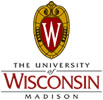Changes to Winstat Software for Instructional Users
As announced in June, because of new software licensing restriction we have created a separate Winstat server farm for instructional users (those who receive accounts in conjunction with a particular class and log in via PRIMO) that no longer has SPSS, Microsoft Office, and Mathematica installed. Instructional users can still use these programs, but only in our two computer labs in the Sewell Social Sciences Building. This does not affect research users, though instructors will need to be aware of how this change affects their students. When you log in, you are directed to the correct farm automatically. Read the article in the June edition of SSCC News for more details. If you have any immediate questions about these changes, please contact the Help Desk.
New Linstats
On Wednesday, September 11, 7:00-7:30, SSCC staff will replace the three Linstat servers with new machines. The new machines will have the same names and the same software installed, and you won't need to do anything different to use them. The new Linstats are somewhat faster, but the main difference is that they each have twice as many cores (16) and twice as much memory (96GB).
The current Linstats will become the heart of an upgraded Condor flock. The older machines in the current flock will be retired, so that all the machines in the flock will be comparable with the current Linstats. It will take some time to reconfigure the machines for use in Condor, but we expect Condor to be available no more than 48 hours after the Linstat upgrade.
Any jobs running on Linstat or Condor at the time of the upgrade will be terminated and will need to be resubmitted.
SSCC's Fall Training Schedule
SSCC training for fall is well underway. Many members took advantage of the Stata and R training that was offered last week. This month we will offer several Stata, SAS, and Matlab training classes. Visit the training page today to register for classes.
Next month qualitative data expert, Christian Schmieder, from School of Education will be offering two new workshops on online-based qualitative data analysis software called Dedoose. Visit the training page to register.
Reserving the Computer Classroom for Fall Semester Courses
Reservations are filling fast for the 3218 classroom. You should act fast if you need the class room for your fall semester class, before your spot gets taken by someone else. Fill out the web form to make reservations. Visit our Instructional Support web page for more information about the 3218 classroom and the mobile lab. If you have any questions, contact Caitlin Tefft (ctefft@ssc.wisc.edu or 2-0862).
Even if you do not need to reserve the classroom or lab, you can arrange for your students to have access to SSCC's drop in labs (3218 and 4218 Social Science) for doing their homework. Caitlin can help you with this as well.
Doug Hemken (dehemken@wisc.edu), statistical computing specialist for SSCC, is available to help students with homework and class projects. You can also arrange for Doug to come to your class and provide instruction on statistical software. Doug's office is in the 4226 office suite and his phone number is 2-4327.
Appointments Available for Statistical Computing Consulting
The SSCC's Statistical Computing Specialists are becoming increasingly busy. In an attempt to minimize waiting time and see as many people as possible, they are now making time available for appointments outside of their usual consulting hours using the UW's Scheduling Assistant. Appointments are ideal for those with questions that will likely take a long time to answer and those who must travel to the Sewell Social Sciences Building and want to make sure someone will be available. Click on the following links to make an appointment with Doug Hemken or Russell Dimond.
During regular drop-in consulting hours, if others are waiting we may invite you to make an appointment if we cannot completely answer your question after 20-30 minutes. This will allow us to help as many people as possible.
Tip: Take Advantage of SSCC's Knowledge Base
The SSCC Knowledge Base should be your first resource for learning about the SSCC or statistical computing in general. Knowledge Base articles can teach how to use SSCC resources, like email or Condor. Articles on statistical computing range from general introductions to Stata and SPSS to specifics like bootstrapping and multiple imputation. The SSCC's statistical computing Knowledge Base has become a significant resource for researchers world-wide, with many articles being downloaded thousands of times per month. Don't miss out.

